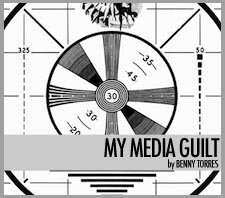Generation Gaps
Posted by Brad Eshbach | October 26, 2012
If I tweet from our account and that teet contains the word “millennial” it will receive twice the clicks as anything else we share, without fail. Our followers clamor for any and all information they can find about how young people work, play, connect and consume. If I didn’t know better (or weren’t 27 years old) I might think the term describes a race of confusing, tiny screen addicted, glowing faced aliens. Why are Millennials such an interesting cohort to dissect and study? Cultural observers (especially those of us in advertising/marketing) have always tried to decode the world of the young and coming of age among us. We attempt to chart trend lines into the future and predict where we are headed based on the lives and actions of those that will help build that future. So why are Millennial’s so hard to nail down?
Maybe more than any generation in modern American history, Millennial’s have had a condensed and rapidly evolving relationship with technology. The crazy pace of innovation and disruptive technology over the last 25 years (beginning with the personal computing revolution of the 80′s through the near universally connected world of today) has created a cohort that has experienced a broadening of possibilities unmatched since the industrial revolution.
So here is my question: If technology is now the driving force of our culture and is progressing at a rate far faster than in Modern history, should our definition of what constitutes a generation be adjusted accordingly?
First, the definition of generation from my generations most trusted source, Wikipedia:
“Social generations are cohorts of people who were born in the same date range and share similar cultural experiences.”

Social generations are usually divided into roughly 25 year chunks based around shared cultural experiences. The 1991 book Generations (the modern bible of generational research) helped popularize the idea that people in a particular age group tend to share a distinct set of beliefs, attitudes, values and behaviors because they all grow up and come of age during a particular period in history. Notice the emphasis is not on when people were born but, when they came of age. Social generations are usually brought together by a unifying event (or series of events) that define the world within which they come to be.
For the GI generation (or the Greatest Generation) it was the great depression. For Baby Boomers it was the end of WWII and the cultural revolutions of the sixties. We are talking major shifts here. Lasting changes that effect how the youth of the day view everything around them.
The problem is that technology (modern society’s new driving force) is now progressing so fast that 25 year blocks might be to large to reflect the actual differences in age groups.

Think about it:
- My mom is 10 years older the her brother. He was born in the first wave of baby boomers, my mom the second. Same generations, nearly identical coming of age experience. Same technologies available to them, same social norms.
- I am 10 years older than my sister, same time span as my mom and uncle. She’s is a Junior in High School. Yet, the worlds we grew up in are drastically different. Her outlook and understanding of ownership, transparency, trust of institutions, equality and commerce (basically anything you can think of) developed in a time when disruptive technologies sre systematically challenging all of it. Napster, Netflix, constant communication, universal connectivity, over sharing; these are all default settings for my sister, not learned behaviors as they were for me. These are differences that have immense impact on our outlooks but are not very well reflected in how we segment our generations. We are both Millennial.
Are we in the middle of a watershed moment? A brief technological renaissance? Will this three decade spike in innovation slow or is this the new norm? Moore’s Law would suggest we are just getting started. Another strong case for including technology as heavily weighted factor in the determining of generations.

In reading about generations thinking about this post I was sucked into a rabbit hole of sociological wonder. If you’d like to do the same I would suggest checking out by William Strauss and Neil Howe. They also wrote previously mentioned which you should definitely take a look at if you would like to be slightly freaked out by what it looks like we are in for over the next couple decades. Hint: It all comes in waves.
The image above is from this cool generation questionnaire and visualization that the USA Today put together.
Let us know what you think about shortening the lengths of generations or to yell at us to get off your lawn on twitter:
One Response to “Generation Gaps”
Leave a Comment
RSS feed for comments on this post · TrackBack URI



Interesting thought…does that mean we can know partition generations by what they had access to when they came of age? e.g. CDs vs. MP3 players, Actual Landline vs. Only Smartphones, Palm Pilot vs. iPad, Answering Machine vs. SMS/Twitter/FB/Tumblr…it both scares me and makes me feel old at the same time…